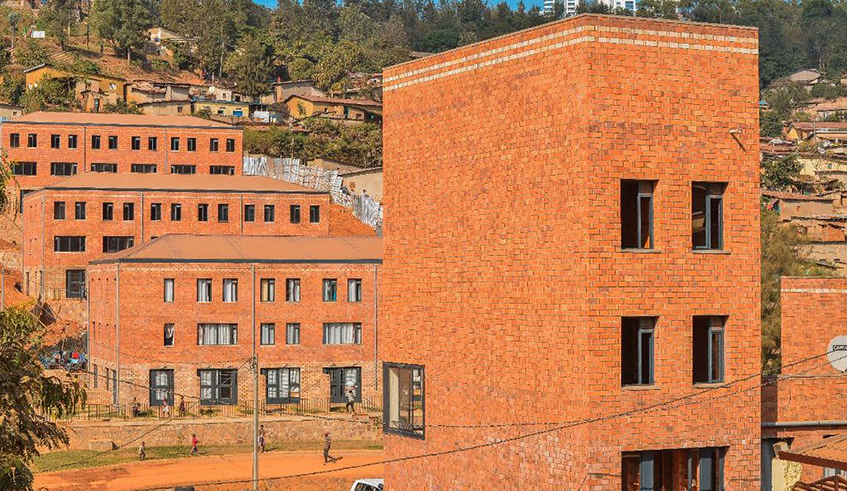

The National Council for People with Disabilities (NCPD) has called for enforcing penalties on public buildings that are inaccessible to people with disabilities.
The Rwanda Building Code of 2015 as revised in 2019 says that for purposes of public safety and accessibility for people with disability, building owners shall be obliged to comply with provisions of this Code even if the building was in place before it was enacted.
However, Emmanuel Ndayisaba, the Executive Secretary of NCPD said that audits carried out indicate that just five percent of buildings in urban areas have facilities for people disabilities.
"The building code is there but it is not understandable how engineers are raising storied buildings that are not accessible to people with disabilities. There is need for fresh crackdown because, clearly there is deliberate violation of guidelines by developers,” said Ndayisaba.
He said that accessibility to people with disabilities might be considered during the initial designs of the structures because it’s a prerequisite to get a construction permit, but this is as far as it gets.
During the construction phase, these designs are overlooked ostensibly to cut costs.
"Sadly, this lack of compliance is happening in the presence of authorities, public and private engineers who are not taking action as they should. This is a serious anomaly. We are going to once again engage the City of Kigali and other districts to tighten audits during this fiscal year,” he said, calling for enforcing penalties.
Janvier Muhire, the building regulations specialist at Rwanda Housing Authority (RHA) reminded and warned of heavy fines against public buildings that are not accessible to people with disabilities.
"The code says that even public buildings that existed before the code should modify to be accessible to people with disabilities. It is also not allowed to issue construction permits to the designs that have not considered accessibility to people with disabilities,” he said in an interview.
Some of the recommended facilities by the building code include stairways, ramps and guardrails, lifts, corridors and lobbies, access doors for persons with disability, and special washrooms among other amenities.
"The problem is with execution. We have realized that after developers get construction permits, they do modifications. If the district or cities issue construction permits, they should inspect to ensure there is compliance,” he said.
Mandatory occupation permit
He said that even after the construction is complete, the owners should request an occupation permit to verify if the building is inclusive for people with disabilities.
"If the owner fails to do so, they should not get the permit. They should also face fines and be ordered to correct the building and add these provisions,” he said.
"If they continue and complete the house without compliance, the building can be closed, the owners can be fined and the building can even be razed down where correction is not possible.”
The fines range between Rfw50, 000 to Rfw5, 000,000 while these buildings can also face closure until changes have been made.
He urged architects and engineers to be honest to ensure compliance during the phase of designing and executing construction projects.
"We will continue to build capacity building for architects and engineers and enhance inspections,” he said.
Engineers’ body speaks out
Gentil Kangaho, the Chairman of the Institution of Engineers Rwanda (IER) which has about 2,800 members told The New Times that they have proposed to the City of Kigali to enter into an MoU with them so as to set up a joint steering committee with inspectors that can jointly assess all public buildings on regular basis.
"We have realized the facilities for people with disabilities are in designs but are not considered during inspections. If we set up a joint committee with the city of Kigali and other cities we can know all projects in pipelines and audit them from design to execution to ensure the buildings are accessible to people with disabilities,” he said.
He said that members of the engineers’ body found violating ethics are also punished including withholding their license.
In addition, he said, facilities for people with disabilities are expensive, stressing that building owners need to be sensitized to change their mindset as they seek to cut costs.
"Besides fines, the non-compliant buildings should be closed until changes are made,” he said adding the whole chain from investors, architects, engineers, officers at one stop centres that issue construction permits, housing authority and city authorities should closely collaborate.


